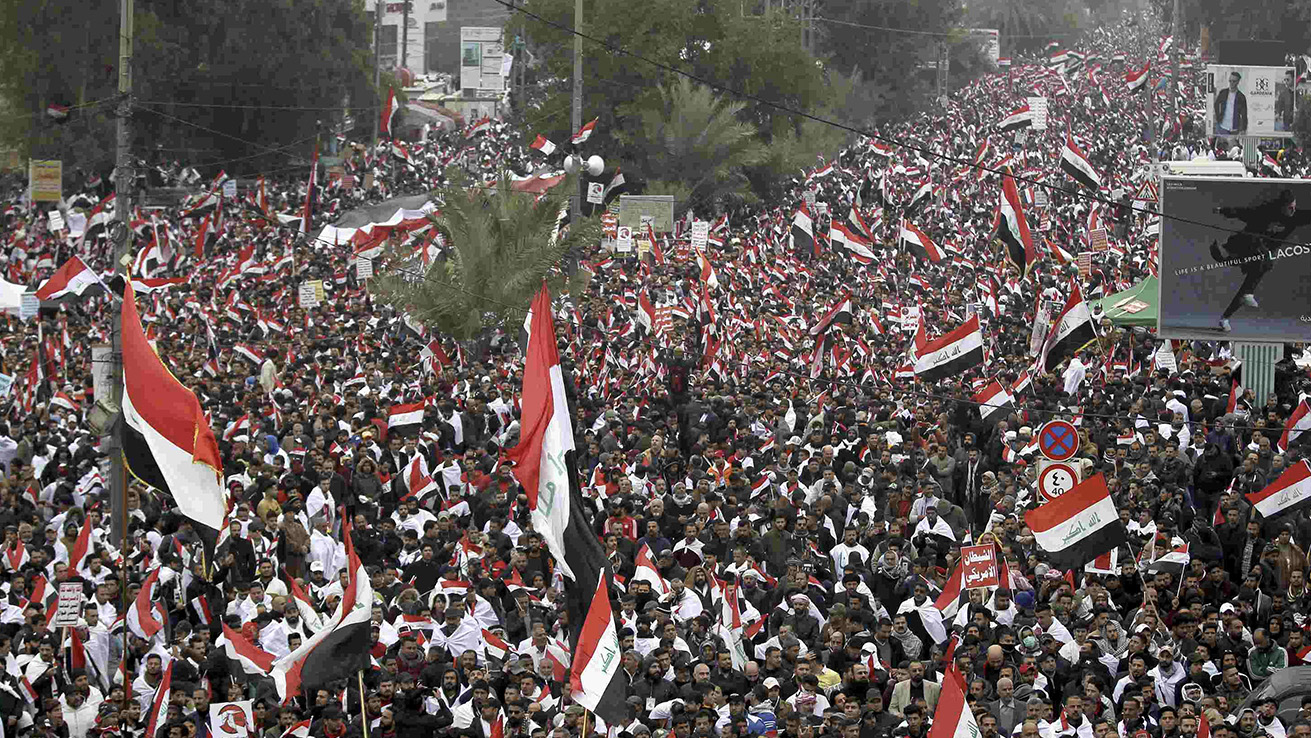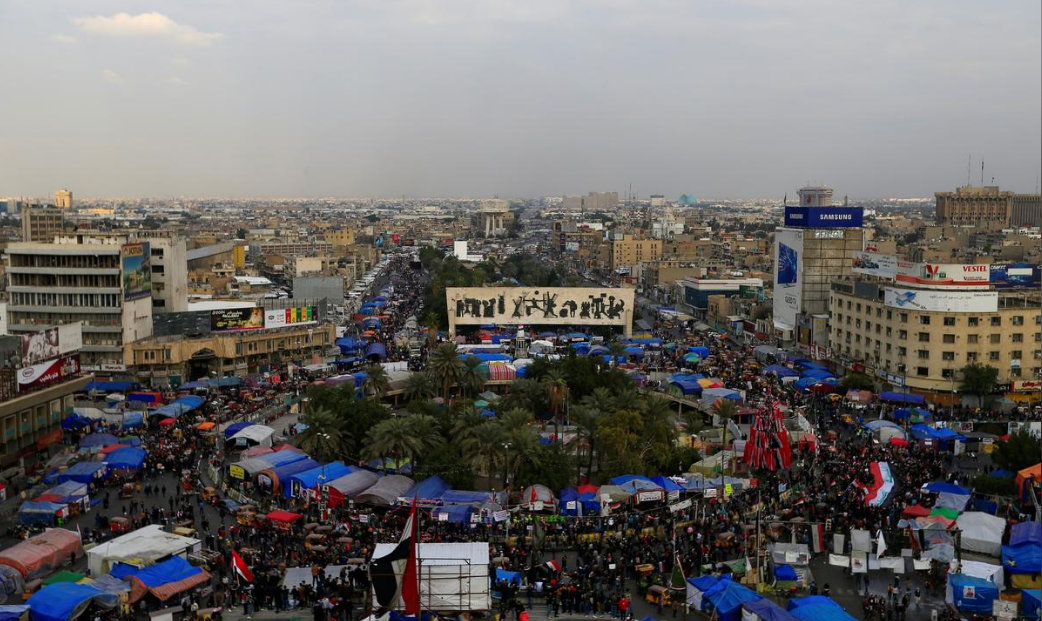00:33

Iraqi security forces raided Baghdad's main protest site at Tahrir Square on Saturday, firing live rounds and tear gas at anti-government demonstrators who have camped out there for months.
At least four people were killed and seven others wounded in Baghdad and southern Nasiriyah during clashes with police earlier in the day, medics and security sources said.
The clashes took place after authorities began removing concrete barriers near Tahrir Square and across at least one main bridge over the Tigris River in Baghdad.
In the southern city of Basra, security forces raided the main anti-government sit-in overnight and deployed in force to stop protesters gathering there again, security sources said. Police arrested at least 16 protesters in Basra, they said.
The actions appeared to be an attempt to fully clear out anti-government sit-ins and end months of popular demonstrations that have called for the removal of Iraq's entire ruling elite.
Security forces began the raids just hours after populist cleric Moqtada al-Sadr said he would halt the involvement of his supporters in the anti-government unrest.
Sadr had supported the demands of protesters for the removal of corrupt politicians and provision of services and jobs soon after the demonstrations began in October but stopped short of calling all his followers to join in.
Many of Sadr's millions of supporters who hail from Baghdad's slums have been involved in demonstrations.
Sadr's followers held a march on Friday calling for a removal of U.S. troops from the country in a rally separate from the anti-government protests, but the protest mostly dissipated after a few hours despite the cleric's call for a "million strong" turnout.
Sadr wrote on Twitter late on Friday that he would "try not to interfere in the issue (of protesters), either negatively or positively, so that they can shepherd the fate of Iraq."
Tens of thousands of Iraqis convened the march after the U.S. killing of an Iranian general and an Iraqi paramilitary chief in Baghdad this month.
Throngs started gathering early on Friday at al-Hurriya Square near Baghdad's main university.
The protests have shattered nearly two years of relative calm following the 2017 defeat of Islamic State and threaten to send the country back into major civil strife.
The country has seen protests since October against a corrupt ruling elite, including Iran-backed politicians.
Washington's killing this month of Iranian military commander Qasem Soleimani added a new dimension to the crisis.
Sadr opposes all foreign interference in Iraq but has recently aligned himself more closely with Iran.
He supported anti-government protests when they began in October, but did not publicly urge his followers to join them.
Parliament urged the government to eject U.S. troops after the killing of Soleimani, but Sunni and Kurdish politicians boycotted the session, the first time lawmakers have voted along ethnic and sectarian lines since the defeat of ISIL militants.
Sunnis and Kurds generally oppose the withdrawal of U.S. troops, seeing them as crucial in fighting ISIL remnants and a buffer against the dominance of Iran.

A general view of Tahrir square as demonstrators take part during ongoing anti-government protests in Baghdad, Iraq, January 10, 2020. /Reuters Photo
A general view of Tahrir square as demonstrators take part during ongoing anti-government protests in Baghdad, Iraq, January 10, 2020. /Reuters Photo
'Iraq's sovereignty must be respected'
U.S.-Iran tension playing out on Iraqi soil has further fractured Iraqi politics and distracted leaders from forming a new government.
Iraq's top Shi'ite Muslim cleric, Grand Ayatollah Ali al-Sistani, called in his weekly sermon for political groups to form a government as soon as possible to bring stability to the country and enact reforms to improve Iraqis' lives.
"Iraq's sovereignty must be respected ... and citizens should have the right to peaceful protest," said the cleric, who comments on politics only in times of crisis and wields great influence over Iraq's Shi'ite majority.
Iraqi President Barham Salih posted a photo of Friday's march on Twitter and wrote that Iraqis deserved a "fully sovereign state that serves its people."
Anti-American marchers on Friday wore Iraqi flags and symbolic white robes indicating they were willing to die for Iraq while others sat looking out over the square from half-finished buildings, holding signs reading "No America, no Israel, no colonialists."
The march did not head as initially feared towards the U.S. embassy. Outside embassy in Baghdad's fortified Green Zone, a sign read "Warning. Do not cross this barrier, we will use pre-emptive measures against any attempt to cross."
(Cover: Followers of Shi'ite cleric Muqtada al-Sadr gather in Baghdad, Iraq, January 24, 2020. /AP Photo)
(With input from Reuters)